By Denise Deveau, Postmedia News
Family law a ‘people’ profession
Soft skills such as empathy and patience go hand in hand with familiarity of many aspects of the legal practice
Nathalie Boutet became a family lawyer because she enjoys helping people resolve their problems.
Photograph by Tim Fraser for Postmedia News
Nathalie Boutet says she was always attracted to working with people. That’s why she became a mediation and collaborative partner with Basman Smith, a law firm in Toronto.
“In high school I already knew I was going into the social sciences,” she says. “First I tried psychology, but I wanted more options.”
In counselling people while a student at Laval University, it became clear that a law career was the right choice. So she applied to law school at the University of Western Ontario.
“I actually thought I would prefer business law,” she says. “My parents went through a horrible divorce, so the last thing I thought I wanted was family law.”
When she articled with different departments at a full-service firm, however, she realized her desire to work with people was always there. “That’s where it happens for me. I love working together with people to resolve their problems. To me, family law touches the core of people’s lives.”
Her focus has changed over the years. “I did do litigation. But as time went on, and my personal life went through some major transitions, I transitioned from handling family disputes in court to mediation and conflict resolution.”
Mediation and collaboration negotiation is much more liberating for Boutet. “In court you are limited within the confines of the law and have to think about how they will decide. I find it way more creative to sit down with people and ask them what they want to do. It’s a completely different atmosphere.”
Boutet’s family law journey is not an uncommon one, says Hilary Linton, principal with Riverdale Mediation in Toronto. As a long-time practitioner and teacher, Linton has learned that the most successful family lawyers are the ones with diverse experience.
“The people who do best in the field are the ones who are fluent in all the processes,” she says. “So the way to really succeed is to expose yourself to all the options you can. Family litigation is a great place to start since you learn a lot. Then you’re in a good position to practice collaborative law, mediation, arbitration or other processes.”
It takes a special kind of person to do family law well, she adds. “You are dealing with intensely personal situations, so it tends to appeal to the people who like to resolve problems and work with high-need people in crisis.”
“People who get into family law seem to be almost hardwired for it,” says Tom Kelsey, director of Family Law Services for GTA for Legal Aid Ontario. “They have a real interest in assisting people and social justice. They like to ensure that vulnerable members of society can get access to legal services.”
The options within a legal aid organization are diverse, he adds. “Roles can range from representation in cases and court assistance, to mediation and document preparation.”
Family law can be emotionally demanding for many, Kelsey cautions. “You need to be able to focus on work/life balance on an emotional level. By the time people are consulting a family lawyer they’re emotionally charged. You need to be prepared to shield yourself from becoming overly involved in cases, but also be engaged enough to provide good, solid legal representation and advice.”
Linton considers family law to be the most complex and challenging area of the profession because of the diverse skills needed. She recommends anyone pursuing family law study psychology and sociology, as well as mediation and negotiation training.
It’s also an area where you need to be familiar with many aspects of legal practice, she notes. “You need to know divorce law, tax law, corporate and real estate law, bankruptcy and pension law, estate law and more. But that’s also what makes it so dynamic.”
On the soft skills side, she says, “You have to be emotionally mature, patient and have a strong capacity for insight and empathy so you can understand dynamics in conflict such as violence, power, and personality disorders.”
“It’s definitely a field that requires you roll up your sleeves and get close to people to see what you can do for them,” Boutet says. “I love that.”

 Menu
Menu